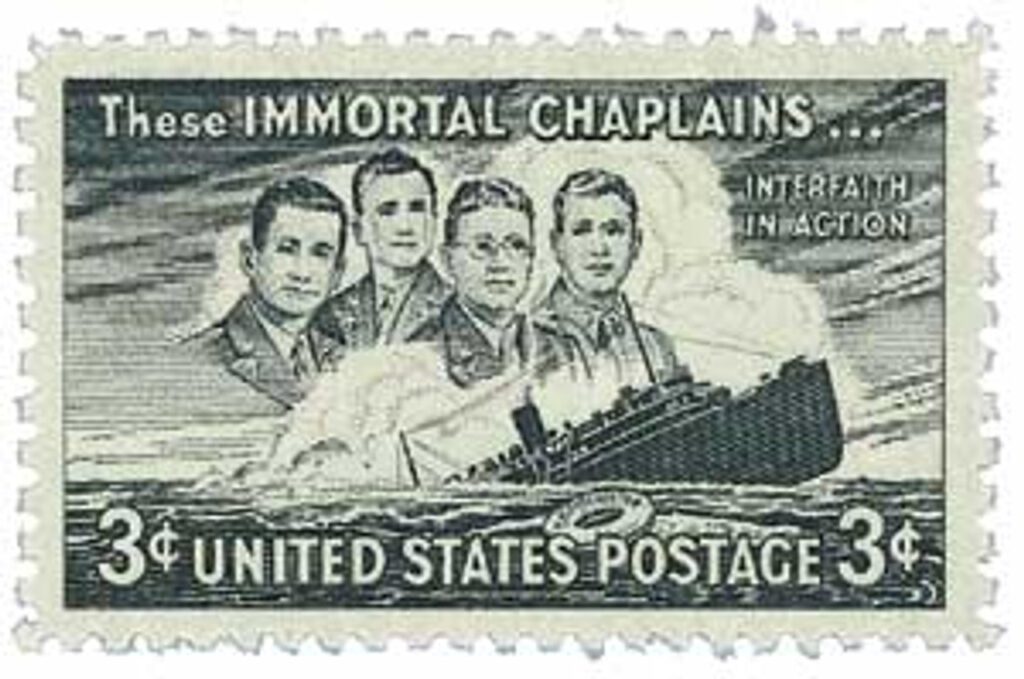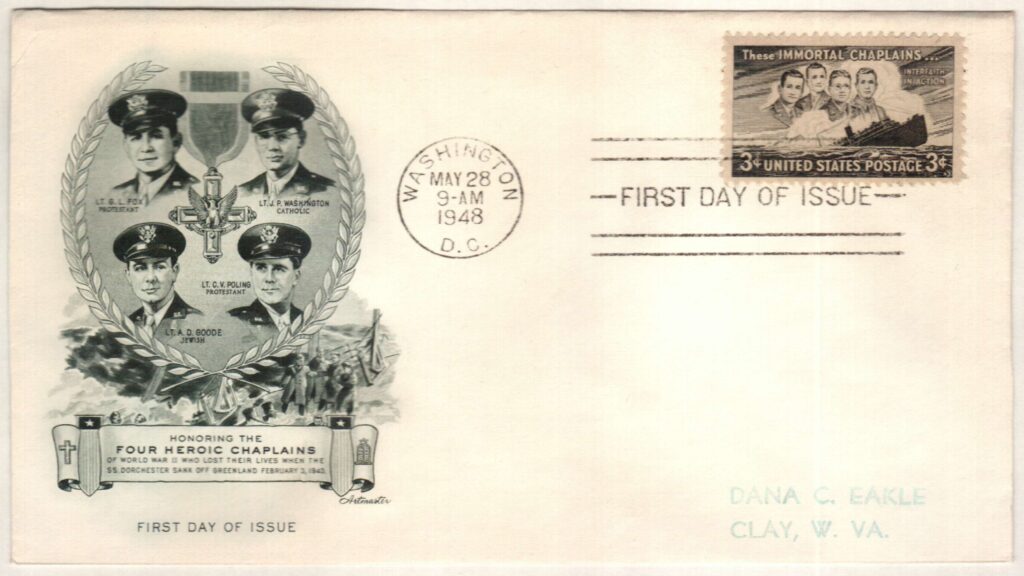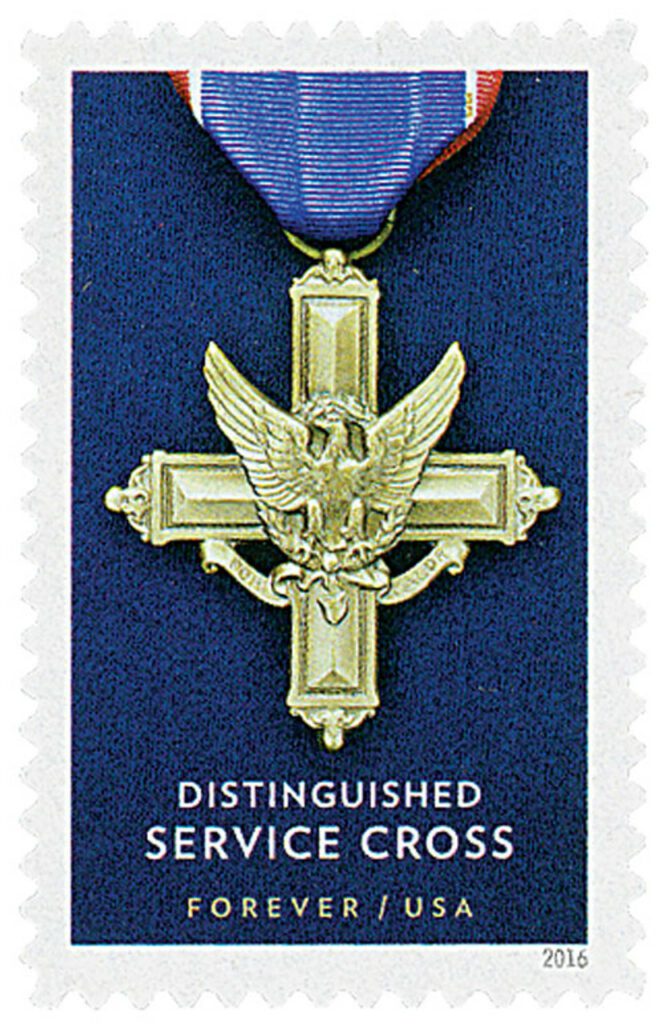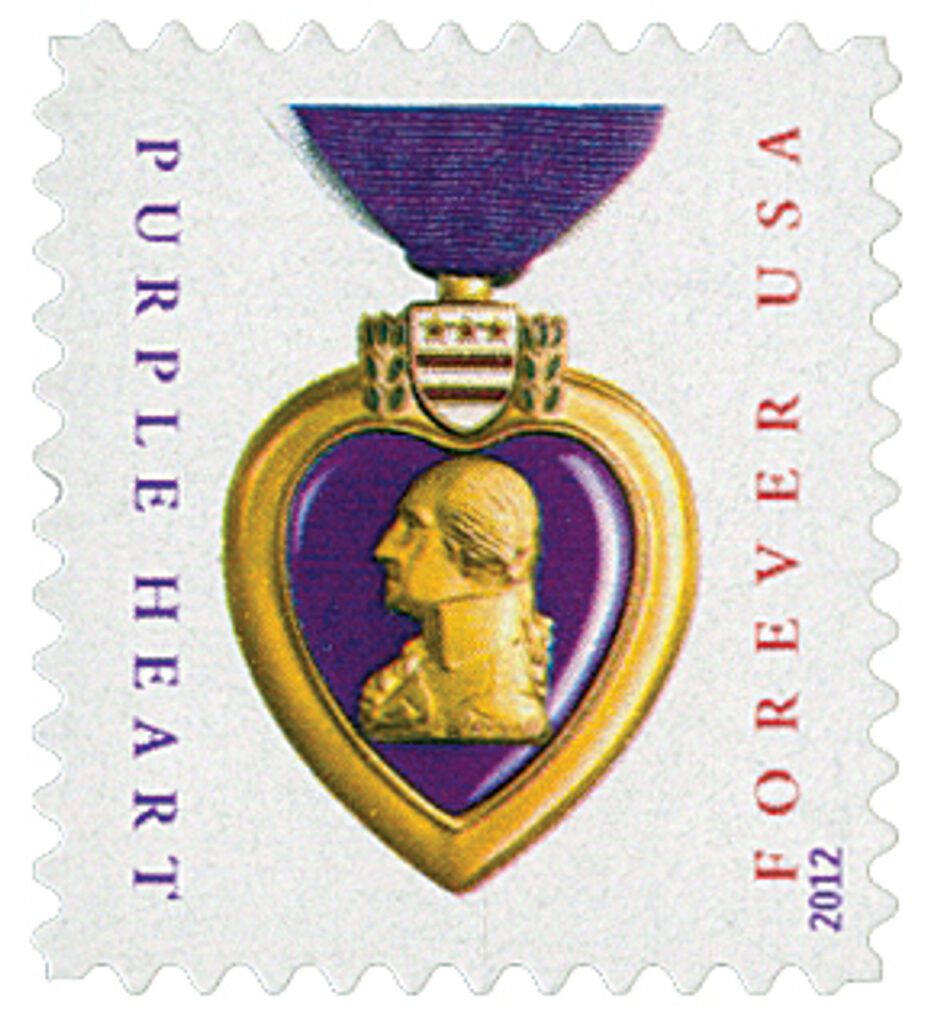
On February 3, 1943, after the SS Dorchester was sunk, the Four Chaplains sacrificed their lives to protect the other men on their boat. The sinking is considered the second-worst sea disaster of World War II.
The US Army Transport Dorchester (formerly a coastal liner) left New York on January 23, 1943, with 904 passengers and crew aboard. Among them were four men who had met at Army Chaplains School at Harvard University – Methodist minister George L. Fox, Protestant minister Clark V. Poling, Catholic priest John P. Washington, and Reform rabbi Alexander D. Goode.
The Dorchester was one of three troop transport ships in a convoy. The crew was on high alert because German U-boats had attacked American ships in the same area near Newfoundland. Because of the concern of attack, the men were ordered to sleep in their clothes and wear their life jackets. But many ignored the command because they found it hot and uncomfortable. Shortly after midnight on February 3, the Dorchester was hit by a torpedo. The blast knocked out the electrical system, and left passengers trapped below deck in darkness.
Chaos ensued, but the four chaplains calmed those on board while organizing the evacuation. As they passed out life jackets, they found there weren’t enough for everyone, so the four chaplains gave theirs away to other men on board. After helping as many of the men into lifeboats as they could, they linked arms, said prayers, and sang hymns until the ship eventually sank.
According to one survivor, “As I swam away from the ship, I looked back. The flares had lighted everything. The bow came up high and she slid under. The last thing I saw, the four chaplains were up there praying for the safety of the men. They had done everything they could. I did not see them again. They themselves did not have a chance without their life jackets.” Of the 904 men initially aboard the ship, just 230 were rescued, as hypothermia took countless lives.
In December 1944, the four chaplains were posthumously awarded the Distinguished Service Cross and Purple Heart. Members of Congress hoped to award the chaplains the Medal of Honor, but because they were not under fire at the time of their bravery, they didn’t qualify. Instead, Congress created the Four Chaplains’ Medal. In 1961, President Eisenhower presented the new medal to the chaplains’ families. Congress further honored the chaplains in 1988 by proclaiming February 3 as Four Chaplains Day.
In the years since the sinking, the Chaplains have been honored in a number of ways. These include several chapels and stained glass windows, sculptures and plaques around the country, as well as books and a documentary (click here to watch the documentary). In 2002, survivors of the Dorchester and the German U-223 that attacked it, met in a reconciliatory meeting.
| FREE printable This Day in History album pages Download a PDF of today’s article. Get a binder or other supplies to create your This Day in History album. |
Discover what else happened on This Day in History.





What do you mean not under fire? What would you call being sunk by a German torpedo? Come on Congress and President Biden. These brave men deserve the MEDAL OF HONOR. Rally around them America
Yea! Let’s all rally together and blame Biden! After all, at 2 months old he should have known better!
Let’s us not everything political, Kevin,